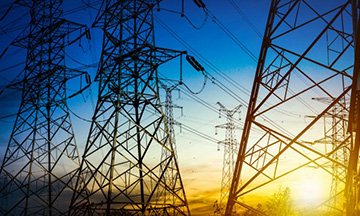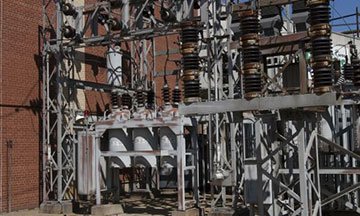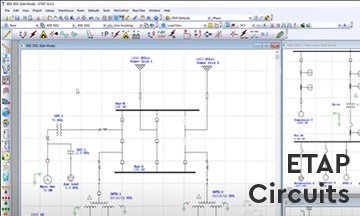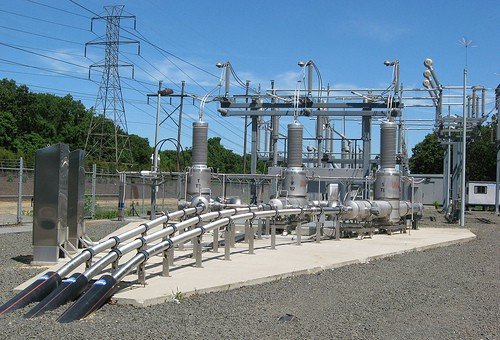Distributed Electricity Generation and Transmission
| Date | Venue | Duration | Fees | |
|---|---|---|---|---|
| 20 May - 24 May, 2024 | Dubai | 5 Days | $4750 | Register |
| 10 Jun - 14 Jun, 2024 | Dubai | 5 Days | $4750 | Register |
| 24 Jun - 28 Jun, 2024 | Lagos | 5 Days | $4950 | Register |
| 08 Jul - 12 Jul, 2024 | Dubai | 5 Days | $4750 | Register |
| 26 Aug - 30 Aug, 2024 | Dubai | 5 Days | $4750 | Register |
| 09 Sep - 13 Sep, 2024 | Dubai | 5 Days | $4750 | Register |
| 16 Sep - 20 Sep, 2024 | Istanbul | 5 Days | $5695 | Register |
| 14 Oct - 18 Oct, 2024 | Dubai | 5 Days | $4750 | Register |
| 04 Nov - 08 Nov, 2024 | Dubai | 5 Days | $4750 | Register |
| 09 Dec - 20 Dec, 2024 | Dubai | 10 Days | $8775 | Register |
Course Overview
Distributed electricity generation and transmission, network analysis, and the planning and design of the system around it, play a crucial role in the technical supervision, expansion, and procurement of intricate power and energy technology systems.
These systems work effectively only if the professionals responsible for planning, coordinating, and overseeing team efforts have the required skills to enable a system to meet its cost, schedule, and performance goals.
Along with the increasing convolution of the problems threatening our civilisation, system complexity has also increased considerably over the last few decades. It is even more essential today to implement enhanced methods and improved processes to effectively monitor life-cycle costs and forecast risks and complexities in order to leverage the best electricity solutions.
What does this “Distributed Electricity Generation and Transmission” course entail overall? This course discusses the fundamentals of power and energy systems and exploration of alternative concepts that best meet the goals of performance, timeliness, and affordability in the production and transmission of electricity.
This Zoe training course will empower you with a renewed focus on the application of advanced methods and tools to the analysis and solutions of complex problems for intelligent decision making.
Course Objectives
Upon completing this Distributed Electricity Generation and Transmission course successfully, participants will be able to:
- Improve expertise in applying practices over project life cycles in the power and energy domains
- Focus on the interfaces between the people, processes, and products
- Equips teams with the knowledge necessary to realise successful solutions
- Use case studies to assess themes such as system architecting, schedule, performance, risk, cost, reliability, stakeholder management, and procurement strategies
- Provide knowledge to realise project solutions and leverage Project Management and Systems Engineering roles and responsibilities
Training Methodology
This collaborative Distributed Electricity Generation and Transmission training program will comprise the following training methods:
- Lectures
- Seminars & Presentations
- Group Discussions
- Assignments
- Case Studies & Functional Exercises
Similar to all our courses, this program also follows the ‘Do-Review-Learn-Apply’ model.
Organisational Benefits
Companies who nominate their employees to participate in this course can benefit in the following ways:
- Keep your company one step ahead with this all-inclusive overview of distributed electricity generation and transmission
- Completing this course successfully will give you more confidence in the handling of distributed electricity generation and transmission
- Gain practical knowledge that will give you an edge in your workplace
- Conversation-based sessions let you connect with your instructor and fellow students
- Collaborative sessions let you link with your instructor and peers to learn from real-world examples that can be applied in your individual roles in distributed electricity generation and transmission
Personal Benefits
Individuals who participate in this course can gain from it in the following ways:
- Carry out risk assessments for distributed electricity generation and transmission
- Be updated with the latest trends and technologies used in distributed electricity generation and transmission
- Benefit from a tailor-made academic program for technicians or equivalent workforce involved in the distributed electricity generation and transmission sector
- Get yourself trained, assessed and certified by experts in the distributed electricity generation and transmission domain
- Identify, act on and report any issues with distributed electricity generation and transmission
- Perform the test activities and site procedures related to distributed electricity generation and transmission
- Detect and utilise the appropriate PPE tools and methods when carrying out distributed electricity generation and transmission procedures
- Enhance your skills and get yourself trained for further qualifications in the areas of distributed electricity generation and transmission
Who Should Attend?
This Distributed Electricity Generation and Transmission course would be suitable for:
- Apprentice Electricians
- Journeyman Electricians
- Master Electricians
- Electrical Supervisors/Managers
- Lead Persons
- Area Supervisors
- Project Supervisors
- Project Estimators
Course Outline
MODULE 1: FUNDAMENTALS OF POWER AND ENERGY SYSTEMS
- Introduction to Energy Generation
- Different methods of generating electricity
- Turbine driven electrochemical generators
- Fuel cells
- Photovoltaics
- Thermoelectric devices
- Nuclear fission and fusion
- Renewable resources (solar, wind, hydro, tidal, and geothermal sources)
- Sustainability and energy efficiency
MODULE 2: TRANSMISSION AND DISTRIBUTION AND SMART GRID
- Power and Energy and the Environment
- Power and Energy Systems Project Management
- Power and Energy Generation
- Transmission and Distribution / Smart Grid
- Principles and Techniques of Wind Energy and Solar Cells
- Power Electronics
- Smart Grids Communications
- Modern power transmission and distribution systems
- Transformer technology
- Transmission grids
- Load management
- Distribution optimisation
- Power supply reliability
- Infrastructure systems
- Security and deregulation
- SCADA systems
MODULE 3: ENERGY AND THE ENVIRONMENT
- Impact of energy generation on the environment
- Global climate change
- Clean energy technologies
- Energy conservation
- Air pollution
- Water resources
- Nuclear waste issues
MODULE 4: INTRODUCTION TO SYSTEMS ENGINEERING
- Why Use Systems Engineering?
- Definition of System and Systems Engineering
- Value of Systems Engineering
- What is Systems Engineering?
- Key Systems Engineering Principles
- The V Systems Engineering Model
MODULE 5: POWER AND ENERGY SYSTEMS ENGINEERING
- Systems Engineering applied to power and energy
- Development of modern complex power and energy systems
- Creating new power and energy technologies and systems
- Need to plan, coordinate, and oversee interdisciplinary team efforts
- Translating operational needs into technology solutions
- Using tools to meet cost, schedule, and performance goals
- Power and energy generation technology cost modelling
- An example of systems engineering
- Integral power and energy system design
MODULE 6: POWER AND ENERGY SYSTEMS ENGINEERING TECHNICAL
- System Conceptual Design
- Using the Architecture
- Feasibility Study/Concept Exploration
- Project Management and Systems Engineering Master Plan
- Concept of Operations (ConOps)
- System Requirements
- System Design
- Systems Architecting
- Software/Hardware Development and Testing
- Integration and Verification
- Initial Deployment
- System Validation
- Operations and Maintenance
- Retirement/Replacement
- System of Systems (SoS) Engineering
- Power and Energy Systems Project Management
- Managing the electric power grid
- Broad spectrum of empirical, theoretical and policy issues
- Generation facilities and equipment
MODULE 7: SYSTEMS ENGINEERING APPROACHES
- Needs and Objectives
- Concept of Operations (CONOPS)
- Definition of the Problem
- Measures of Effectiveness/Measures of Performance
- Needs and Objectives Analysis
- Objectives (Statement of Objectives, Objectives Tree)
MODULE 8: SUSTAINABLE ENERGY PRODUCTION AND USAGE
- Conventional and sustainable energy production and utilisation
- Overview of the major energy flows
- Production and end-use
- Power and Energy Systems Analysis
- Rankin cycles from traditional power plants
- Advanced Convection Heat Transfer
- Advanced Thermodynamics
- Impact of Energy Conversion on the Environment
- Combustion and Reacting Flow
- Measurement and Instrumentation
- Fundamentals of thermal and fluid processes in single phase and multi-phase flows as related to this course
- Experimental design and planning
- Sources of errors in measurements
- Uncertainty analysis
MODULE 9: RELIABILITY ANALYSIS AND ENGINEERING
- Principal methods of reliability analysis
- Fault tree and reliability block diagrams
- Failure Mode and Effects Analysis (FMEA)
- Systems engineering approaches
- Significant performance improvements and savings in capital and operating costs
- Mathematical Techniques for Engineers
- Applications of matrices, vectors, tensors, differential equations, integral transforms, and probability methods to a wide range of engineering problems
- Risk Assessment for Engineers
- Market, Spatial, and Traffic Equilibrium Models
MODULE 10: APPLYING SYSTEMS ENGINEERING AND OPTIMISATION
- Applying systems engineering in your project & organisation
- Concepts, definitions and examples
- Optimality and convexity
- Linear programming
- Single objective optimisation: unconstrained methods
- Single objective optimisation: constrained methods
- Multi-objective optimisation methods
- Post-optimality analysis
- Optimality and duality
- Mixed (continuous) integer/discrete optimisation: single objective
- Mixed continuous-discrete optimisation: multiple objectives
- Robust optimisation
- Multi-disciplinary optimisation
- Multi-level post-optimality sensitivity analysis











